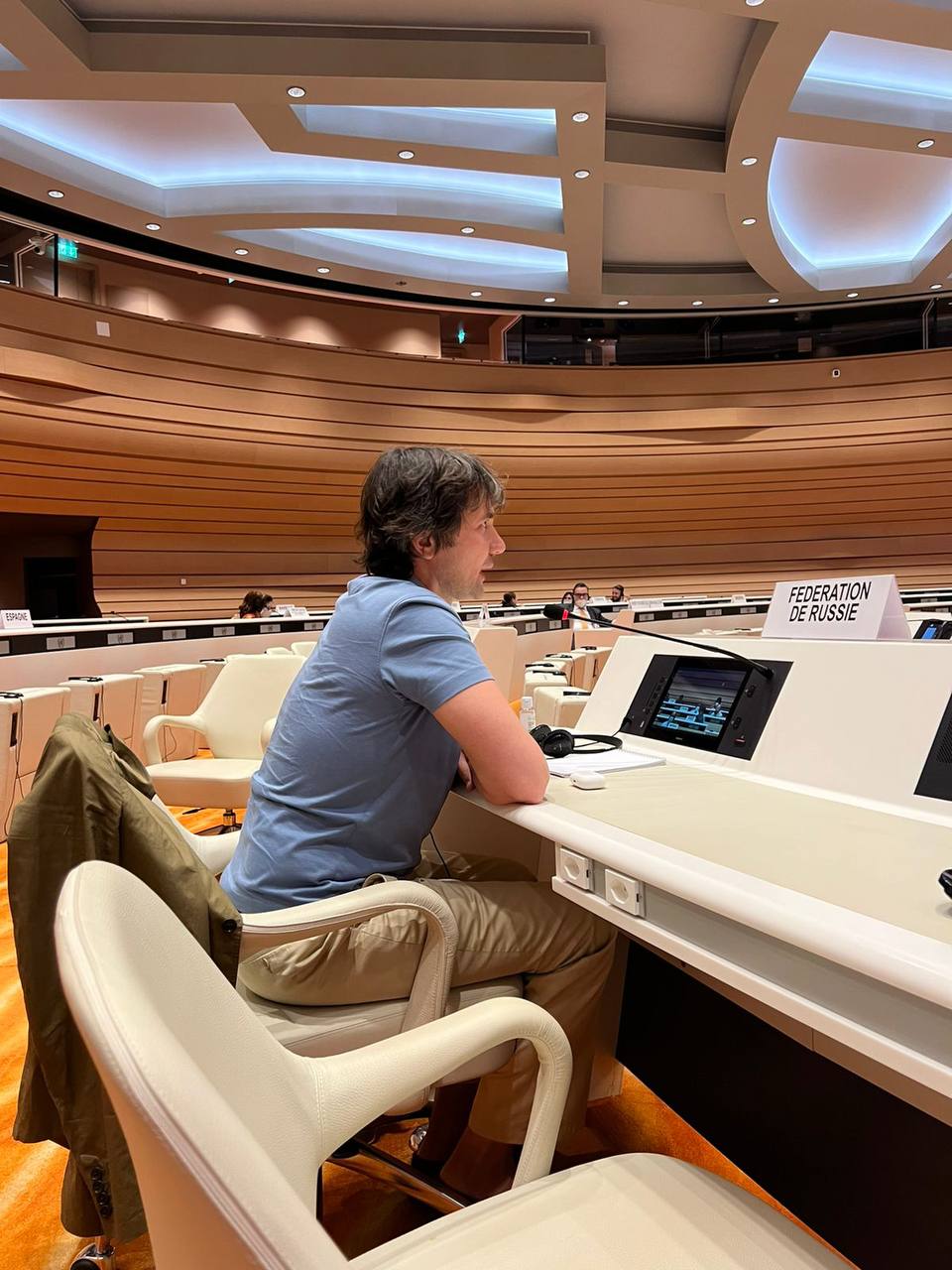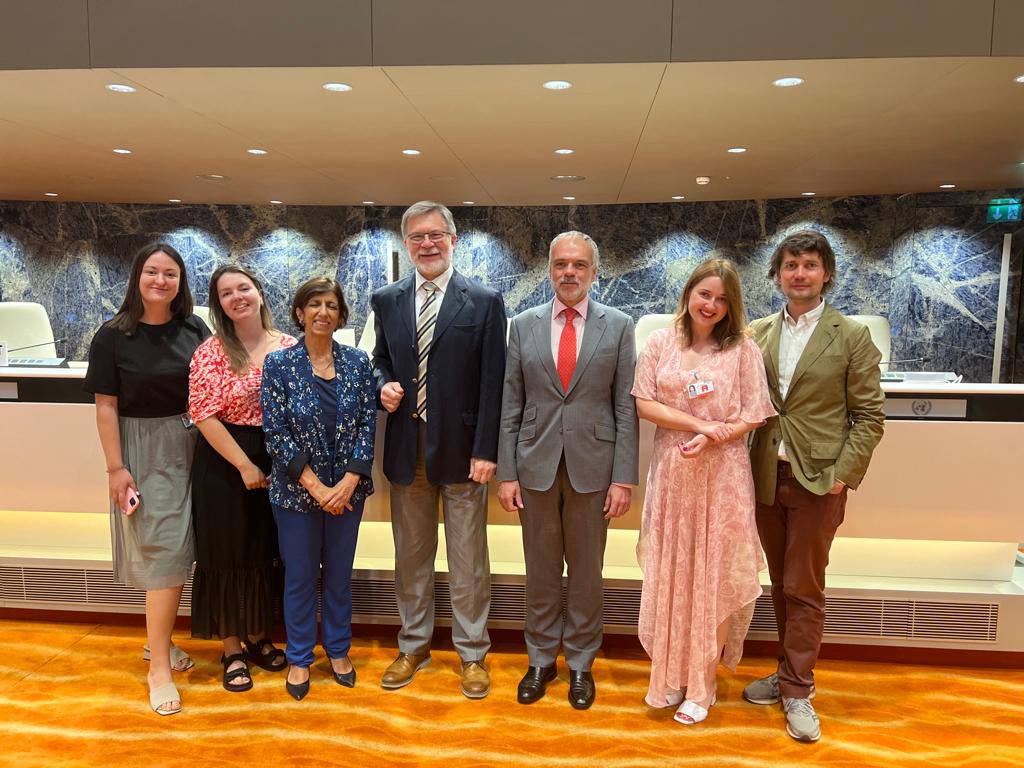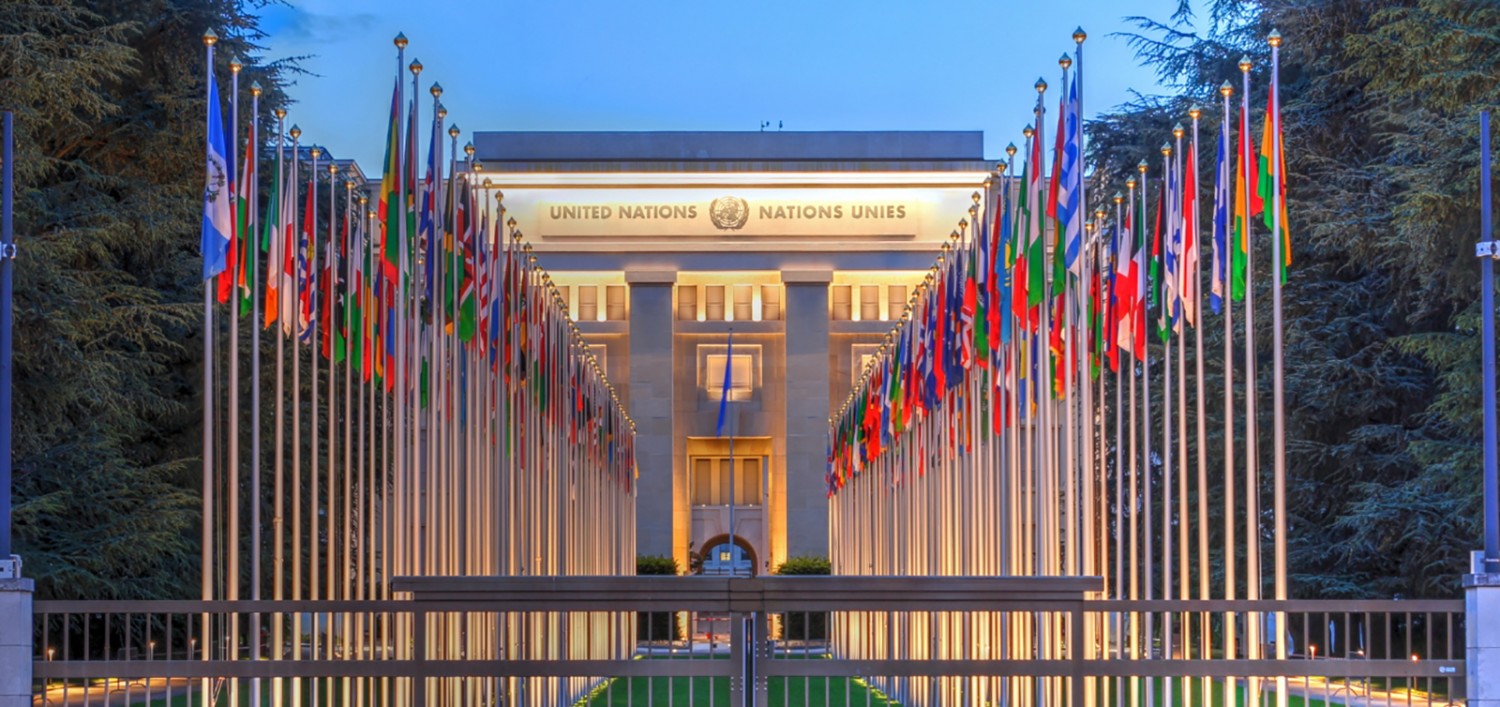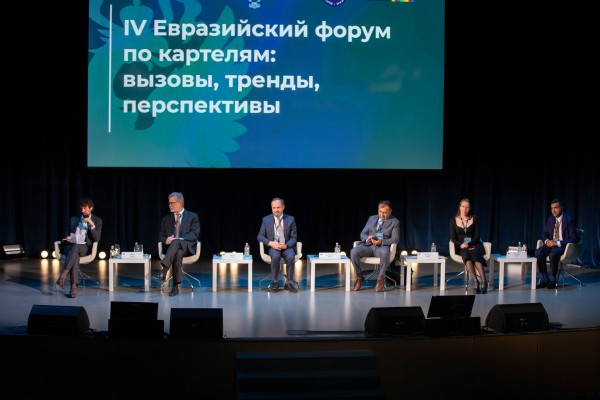Alexey Ivanov, Director of the BRICS Competition Law and Policy Centre, and Anna Pozdnyakova, Researcher at the Centre, took part in the 20th session of the UNCTAD Intergovernmental Group of Experts (IGE) on Competition Law and Policy, held from 20 to 22 July in Geneva.
This year, the main topics of discussion were the intersection of competition policy, consumer protection policy, and data protection; antitrust enforcement during the pandemic and the role of competition policy in supporting micro, small and medium-sized enterprises during economic recovery after the COVID-19 pandemic.
On the ambiguity of the issue of innovation development
The 20th session of the UCNCTAD IGE started with a meeting of the UNCTAD Research Partnership Platform. Alexey Ivanov, Director of the BRICS Competition Centre, raised the issue of the role of innovations and other non-economic phenomena in the law enforcement process. Today, the argument about the development of innovation is often used by the defense when considering violations of antitrust laws by companies, to actually "scatter" the antitrust case.
“By adopting the innovation paradigm as it stands, competition authorities reduce the effectiveness of their own law enforcement, and miss economic concentration deals that have a negative impact on the economy. This stance goes against the trends of a proactive role of regulators, especially in the new digital markets”,
Alexey Ivanov is convinced.

Developing countries, whose competition authorities are often unable to resist the arguments of big international business, suffer especially great damage from such a discourse. Speakers at the session suggested that it is necessary to strengthen the role of competitive enforcement and its linkage with other economic and non-economic policies in order to achieve sustainable development goals.
Competition and consumer rights in digital markets
Digital platforms are among the few businesses that have benefited from the crisis and have strengthened their market power. To address competition concerns related to digital markets, it is necessary to strengthen the control over the activities of platforms and prevent their abuse aimed at excluding new competitors from markets.
In 2019, the BRICS Competition Centre published a report “Digital Era Competition: a BRICS View”, which addresses, among other things, the intersection of various regulatory aspects in order to counter the restrictive practices of digital platforms.
Andrey Tsyganov, Deputy Head of the Federal Antimonopoly Service (FAS) of Russia, stressed that most of the regulator’s decisions, including those regarding transnational digital giants, are aimed at ensuring equal access to digital markets for Russian small and medium-sized enterprises, since they were most affected by the crisis.
During the session “Crossroads: how to better address the interplay between competition, consumer and data protection policies in the digital era”, the experience of Brazil was presented. President of the Administrative Council for Economic Defense (CADE) of Brazil, Alexandre Cordeiro, said that the tasks of regulating digital markets in developed and developing countries are very different, including the degree of regular intervention. In his opinion, effective regulation of digital markets requires a separate agency, which currently does not exist in Brazil. The speaker also noted the importance of cooperation between antimonopoly authorities to create effective regulatory tools for digital markets.
Antitrust during the pandemic and after
The experience of the BRICS Competition Centre was reflected in the report for the session “Rethinking competition law enforcement: Lessons learned from the pandemic, particularly in socially important markets – Challenges and opportunities for an effective response during the pandemic and economic recovery in the post-pandemic period”. In a crisis, regulators need to share information and create effective mechanisms to counter companies that engage in cross-border violations.
“For example, the BRICS Competition Law and Policy Centre is currently conducting an in-depth study on developing new approaches to regulating digital ecosystems across BRICS”,
noted in the report.
The session also presented the experience of the antimonopoly authorities of South Africa, Russia and India. The head of the Competition Commission of South Africa, Tembinkosi Bonakele, noted that it has always been important for his department to combine the goals of developing competition with more general socio-economic goals, such as sustainable development, equality, ecology, labor law, etc. He also stressed that due to timely amendments into legislation and advocacy measures, the South African Competition Commission has been successful in meeting the challenges of the COVID-19 pandemic.
Andrey Tsyganov, Deputy Head of the FAS Russia, also mentioned the importance of advocacy tools. During the pandemic FAS broadcasted to the business community that any attempts to unreasonably inflate the prices of socially important goods would be suppressed.
“The attempts of some entrepreneurs, and not only the dominant ones in the market, to profit from the suffering and pain of ordinary people during the pandemic cannot be accepted as normal business behavior,”
Andrey Tsyganov said.
The main goal of the Competition Commission of India during the pandemic has been to ensure the smooth production and delivery of essential goods. The representative of the department noted that competition and consumer welfare in these markets were of particular importance during the crisis.
Support for SMEs in times of crisis
Representatives of the Russian Federation also spoke at the session “The role of competition law and policy in supporting the micro, small and mediumsized enterprises (MSMEs) during the economic recovery in the post COVID19 period”. Andrey Tsyganov, Deputy Head of Russia's Federal Antimonopoly Service, emphasized that it is the small businesses which suffer most from the actions of dominant entities, and sometimes even from the actions of the authorities. In this respect, the measures implemented in Russia over the last few years to reduce the administrative burden on business are important.
The FAS Russia is increasingly using such "soft law" instruments as warnings and cautions, Andrey Tsyganov stressed.
“When considering any case, we scrutinize whether the company's behavior was aimed at obtaining non-competitive advantages or whether it was forced and the only possible way in difficult economic conditions”.
In addition, antimonopoly compliance standards have been introduced into the Law on Protection of Competition, which allow small and medium-sized businesses to independently assess antitrust risks and avoid them.
Cross-border cartels: problems and features of the investigation
Representatives of the BRICS Competition Centre are members of the UNCTAD Working Group on Cross-Border Cartels. Since the group was founded in 2019, the Centre has been providing it with methodological support and managed to prepare two versions of a report on the experience of competition authorities in combating cross-border cartels.
In 2021-2022, the Working Group dealt with the issues of digitalization, cooperation, law enforcement and leniency programs. Particular attention was paid to the practical difficulties that competition authorities face when investigating cross-border cartels.
The Working Group's activities during this period included a review of the enforcement experiences of competition authorities in Chile, the European Commission, Austria and Colombia. These case studies explored the significant differences in cartel investigation procedures and how these differences affect the interaction of competition authorities.
Directions for further cooperation
Future directions for UNCTAD's work include deepening discussions on the practical challenges of cooperation between competition authorities (e.g. enforcement) as well as the importance of informal cooperation and its legal and other limitations.
Besides, preparation of research projects on cross-border cartelization of commodity markets and networking of competition authorities (International Competition Network, European Competition Network, etc.) for investigation of cross-border violations is planned. Research project on cartelization in the global pharmaceutical market is also being discussed.
Appreciating the activities of the Working Group in 2021-2022, the UNCTAD IGE decided to extend its mandate until July 2023. The BRICS Competition Centre will continue its activities as part of the Working Group and will take an active part in ongoing projects.
It should be recalled that in 2021 the BRICS Competition Law and Policy Centre and UNCTAD signed a memorandum of understanding. The agreement is aimed at developing cooperation between UNCTAD and HSE University in the field of competition, with a focus on the problems posed by cross-border cartels.

From left to right: Sofia Kravchenko (FAS), Anastasia Dokukina (FAS), Teresa Moreira (UNCTAD), Andrey Tsyganov (FAS), Jose Luis Cancela (UNCTAD), Anna Pozdnyakova (BRICS Centre), Alexey Ivanov (BRICS Centre).




